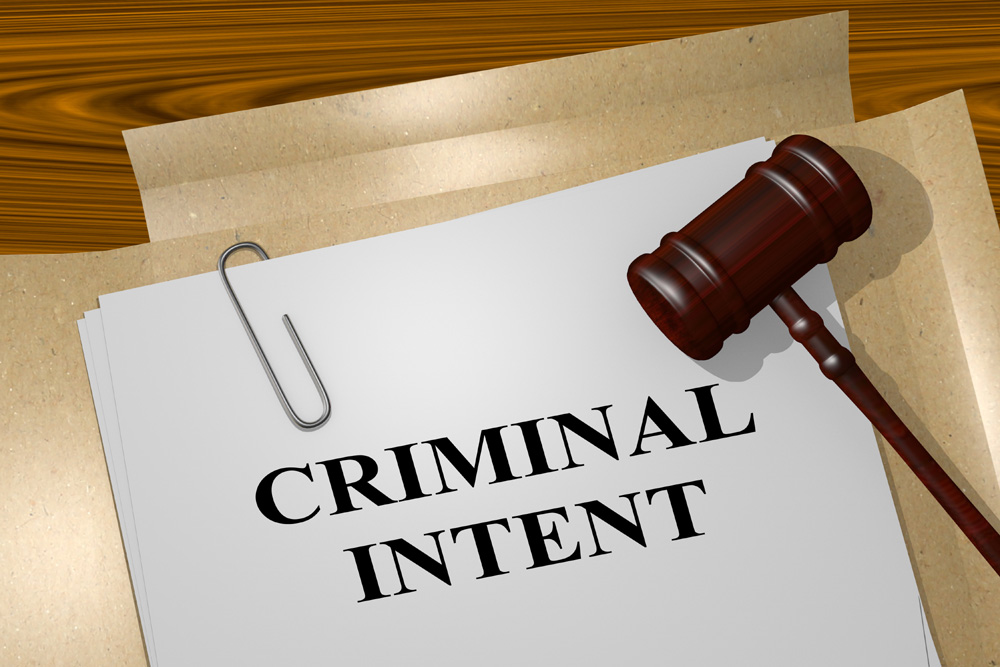
Criminal Intent: Why It’s Important to a Defense Strategy
When you accidentally cause someone harm, your criminal case will center around the idea of intent. Was the inciting incident that caused the harm purposeful or malicious? If the answer to that question is yes, your intent and conduct are considered criminal. If the answer is no and the harm caused was truly unintentional, your misconduct may not be declared criminal, even if the activity was illegal.
Having a dedicated criminal defense attorney defend your intent can be pivotal to the outcome of your case. If you have been wrongfully charged with a crime, it is vital you get in contact with a criminal defense attorney immediately so that they can begin to work on your case and prove your misconduct was not intentional or done with any knowledge of committing a crime. Fighter Law has proudly fought for our community’s rights for many years now and would love to do the same for you.
Understanding Criminal Intent
To fully understand criminal intent and why it’s important to your defense strategy, it’s vital to have knowledge of the following aspects:
How Intent Affects Your Criminal Defense Case
When you are charged with a crime, the prosecuting attorney has the task of proving that you not only committed the crime, but did so knowingly and with intent. For example, if you are arrested for driving someone to rob a bank, they will adhere to this burden of proof and have to give evidence showing that you drove the robber there and also knew they had intentions of committing a crime.
If you did not have any knowledge or criminal intent at the time of the crime but still engaged in illegal misconduct, your attorney will work tirelessly to demonstrate you did not participate willfully. By arguing you lacked intent, it is possible to have your criminal charges reduced or completely dropped. On the other hand, when you are found to have criminal intent, you do not even have to commit a crime to potentially face charges. If an officer has reasonable suspicion you have intent to commit a crime, they are under their rights to arrest you.
How Intent Is Proven
A good defense is able to prove that you had no criminal intent and that your misconduct was unintentional. Typically, intent is proven through a variety of evidential factors, including:
- Emails
- Text exchanges
- Phone calls
- Social media posts
- Written notes
- Legally recorded phone calls
The prosecutor can link your conduct to the criminal behavior to create a connection and reasonable doubt that you did anything unknowingly. For example, if you have a past criminal history, it may be used to inform certain notions and ideas about the types of behavior you typically participate in.
It’s not easy to demonstrate an individual’s thought process. If the prosecutor is unable to prove all required elements of the case, the defendant may not be convicted.
Speak to a Knowledgeable and Steadfast Criminal Defense Attorney Today
Every criminal case comes with a different set of factors and to ensure you are giving yourself the best possible chance of success, it is important to speak with a dedicated attorney from Fighter Law today. Our board-certified team, including Attorney Thomas Fighter, is proud to offer knowledgeable and compassionate services that will navigate you through the entire criminal defense process, from the first consultation to the final hearing.
It’s important you reach out as soon as possible so our team can begin building your defense strategy and proving you had no criminal intent. For a free case evaluation today, please call our office at (407) 344-4837 or use our contact form.
Share:
free case evaluation
Fill out the form below for an free evaluation of your case.
Categories
- Birth Injury
- Boating Accidents
- Car Accidents
- Civil Rights
- Criminal Defense
- Cyberstalking
- Divorce
- Dog Bite Injury
- Domestic Abuse Charges
- Domestic Violence
- Drug Charges
- DUI Charges
- Family Law
- Felonies
- Fighter Law Firm
- Firearms
- Firm News
- Guardianship
- Injunction Removal
- Injunctions
- Marketing
- Personal Injury
- Repeat Violence Injunction
- Restraining Order
- Seal and Expunge
- Self Defense
- Sex Crimes
- Slip and Fall
- Stalking Injunction
- Theft and Robbery
- Theme Park Trespasses
- Traffic tickets
- Uncategorized
- Wills and Trusts

